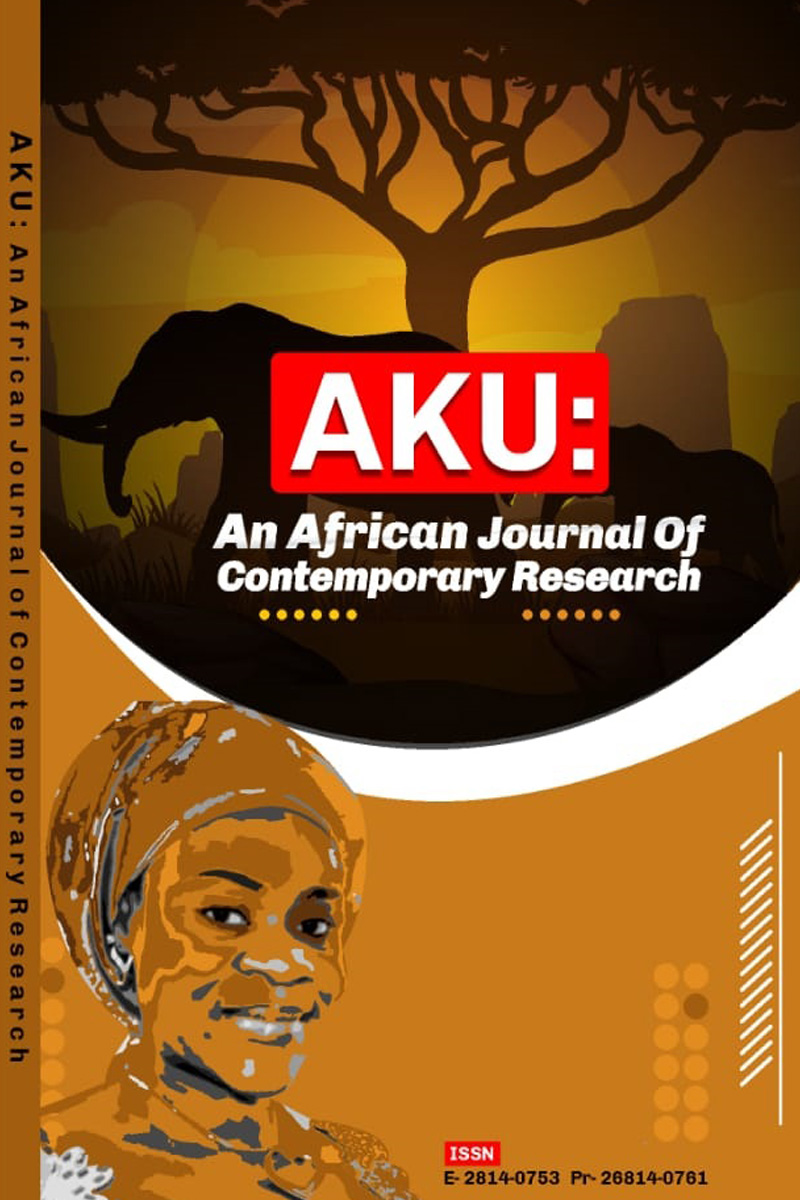 AKU - An African Journal of Contemporary Research (AAJCR) (Vol. 4 No. 4, 2023)
BARUCH SPINOZA'S CONCEPTION OF FREEWILL AND DETERMINISM: A PHILOSOPHICAL EXPOSITION
AKU - An African Journal of Contemporary Research (AAJCR) (Vol. 4 No. 4, 2023)
BARUCH SPINOZA'S CONCEPTION OF FREEWILL AND DETERMINISM: A PHILOSOPHICAL EXPOSITION
ABSTRACT
The freedom of the will appears to have no place in an unalterable and necessary chain of causation in Spinoza's ethical system. Furthermore, cause, reason, and nature are all closely identified in Spinoza's philosophy: cause is reason, reason is cause, and causation is the same as essential causality. Can man then exercise his free will when choosing a course of conduct without interference or one that is not imposed upon him? The purpose of this work is to clarify Baruch Spinoza's conception of freewill, often known as freedom of the will and determinism. The method adopted in this work is exposition, wherein, as it is being exposed, Spinoza's ideas about free will and determinism are made clear. Findings show that Spinoza defends determinism and opposes the notion of free will, proving that the functioning of our minds and bodies is same. In accordance with Spinoza, the unity of nature and God is the single uncaused substance that is real and the essential effective cause of everything else. This research work therefore seeks to provide relevance to his views to reintroduce this idea into society given that modern man tends to distance himself and decline to take responsibility for actions done, which is sure to raise the responsibility question.

